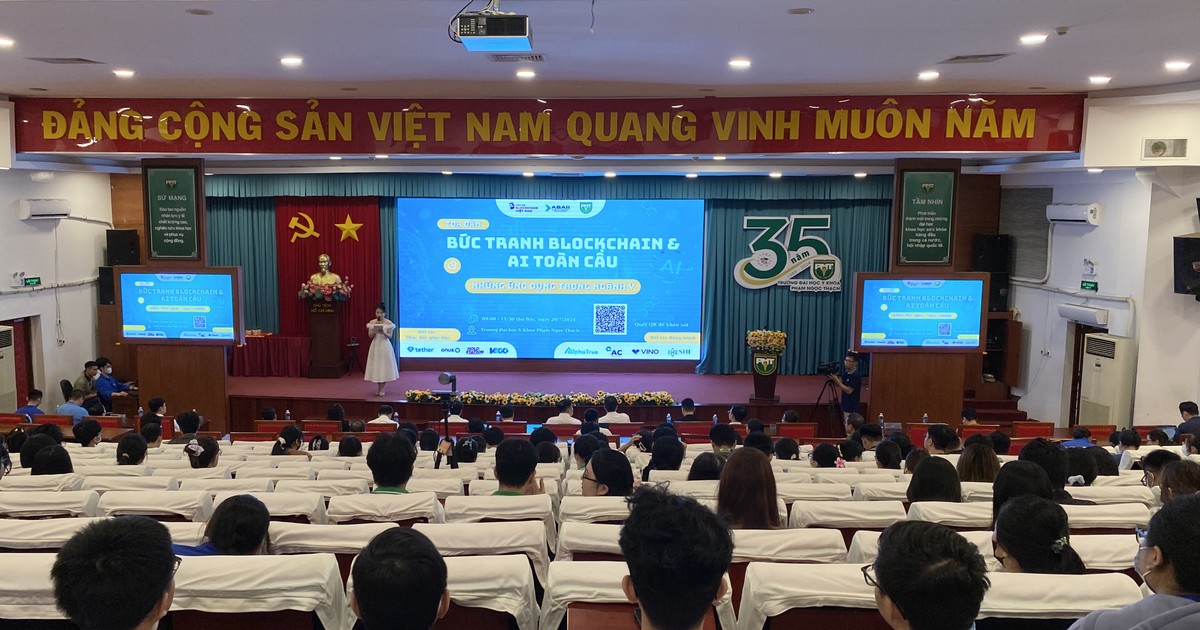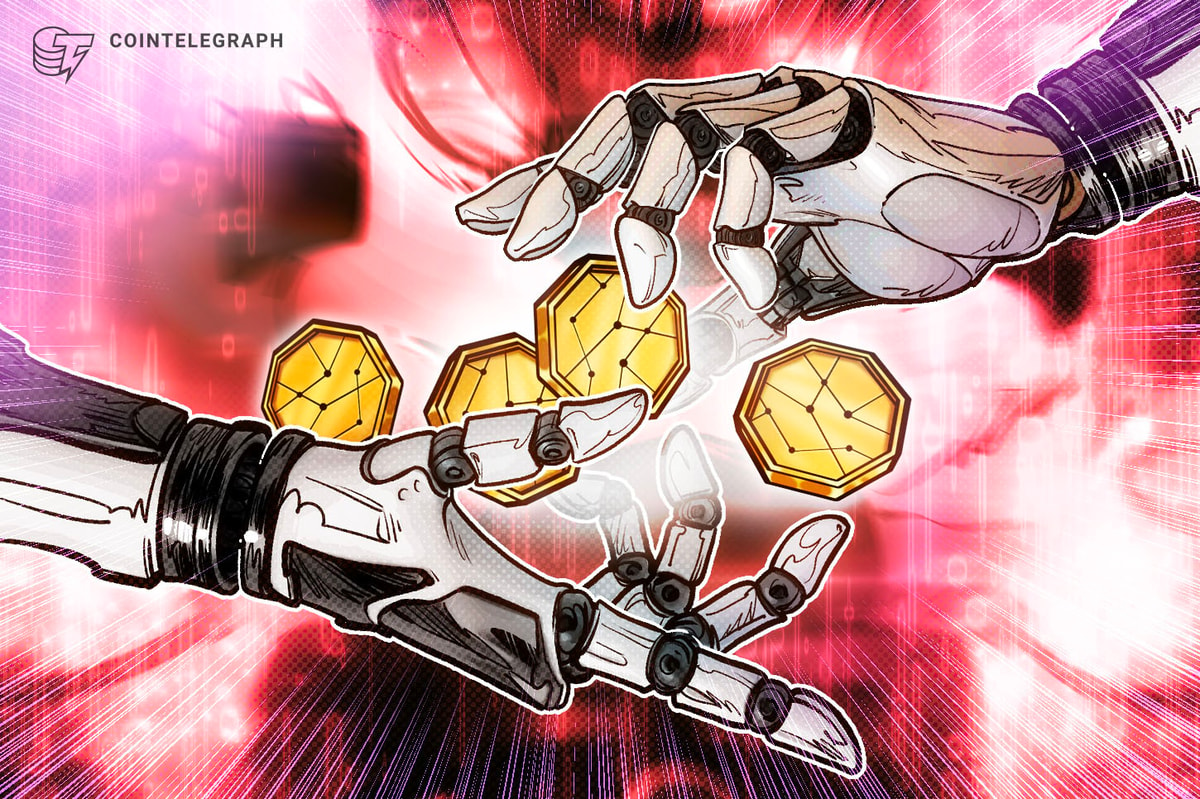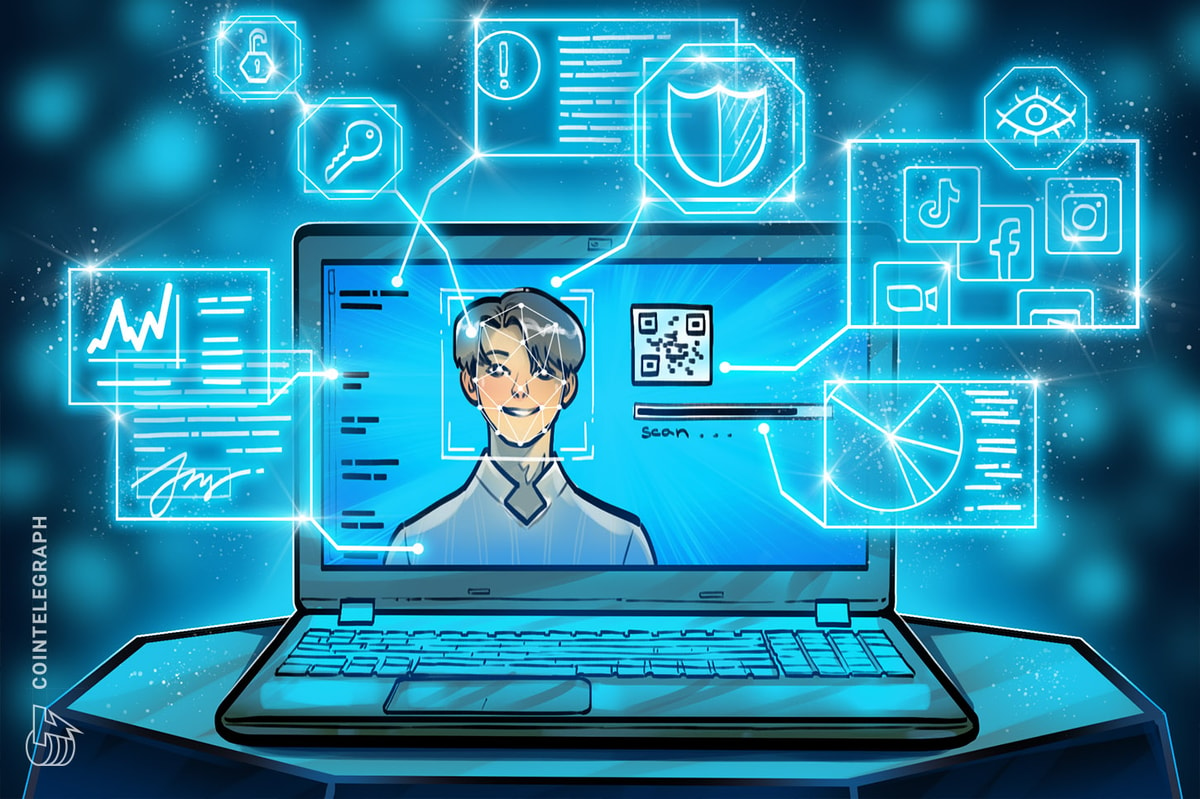Global Blockchain and AI Picture – Applications in the Medical Industry
Introduction
A seminar on Blockchain and AI applications in the healthcare sector was held at Pham Ngoc Thach University of Medicine, attracting more than 400 students and lecturers. The event was organized by Vietnam Blockchain Association, ABAII Institute of Blockchain Technology and Artificial Intelligence, and Pham Ngoc Thach University of Medicine in Ho Chi Minh City.
The Impact of Blockchain and AI in Healthcare
The application of Blockchain and AI in the healthcare sector is expected to revolutionize human healthcare. AI can assist doctors in diagnosing diseases, predicting health risks, supporting treatment, managing medical records, developing drugs, monitoring medical supply chains, and aiding in patient care. Furthermore, the intersection of AI and advanced technology solutions is transforming community healthcare, accelerating the development of new drug formulations, reducing costs, and enhancing research outcomes.
Key Takeaways from the Seminar
According to Deputy Director Dao Trung Thanh of the ABAII Institute, AI is profoundly reshaping various fields, including the economy, healthcare, culture, and education. In the healthcare sector, AI can reduce treatment costs by up to 50 percent and improve health examination results by up to 40 percent.
A study conducted by the University of Hawaii found that deploying AI technology significantly enhances the accuracy of breast cancer risk prediction. AI algorithms, trained on millions of medical images, outperform the capabilities of X-ray doctors. Moreover, healthcare facilities can reuse these algorithms without incurring additional costs, apart from hardware.
Potential Applications of AI and Blockchain in Healthcare
Associate Professor Tran Thi Khanh Tuong, Head of the Department of Internal Medicine at Pham Ngoc Thach University of Medicine, shared insights on how AI and Blockchain can positively impact the healthcare industry. These technologies can enhance disease diagnosis, manage medical records, control drug origins, and streamline circulation processes.
Future of Healthcare with AI and Blockchain
Therefore, the healthcare sector is keenly interested in exploring these applications and is researching suitable training programs to equip students with knowledge and skills in this rapidly evolving technological landscape.
Conclusion
In conclusion, the seminar highlighted the potential of AI and Blockchain in revolutionizing the healthcare sector. As the industry continues to evolve, it is essential to invest in training programs and research initiatives that focus on harnessing the power of AI and Blockchain.
FAQs
Q: How can AI reduce treatment costs in the healthcare sector?
A: AI can reduce treatment costs by up to 50 percent by optimizing treatment plans, streamlining medical procedures, and reducing errors.
Q: Can AI replace doctors in the healthcare sector?
A: No, AI cannot replace doctors. Instead, algorithms and data synthesis capabilities allow devices to assist physicians in determining appropriate treatment options for each patient.
Q: How can AI enhance diagnostic capabilities in healthcare?
A: AI algorithms can enhance diagnostic capabilities by analyzing medical images, identifying patterns, and providing accurate diagnoses.
Q: What are the benefits of using AI in healthcare?
A: The benefits of using AI in healthcare include enhanced diagnostic capabilities, improved patient care, reduced treatment costs, and accelerated research outcomes.
Q: How can Blockchain improve healthcare records management?
A: Blockchain can improve healthcare records management by ensuring data security, transparency, and accuracy, thereby reducing errors and improving patient care.
Q: What is the current trend in AI adoption in the Vietnamese healthcare sector?
A: According to the Ministry of Health, the use of AI in healthcare is a global trend, and the Vietnamese healthcare sector is strongly adopting AI technology to improve and enhance patient care activities.










